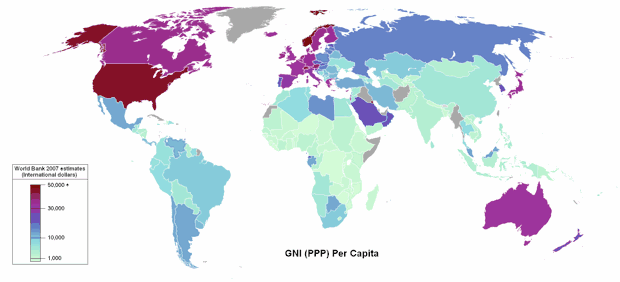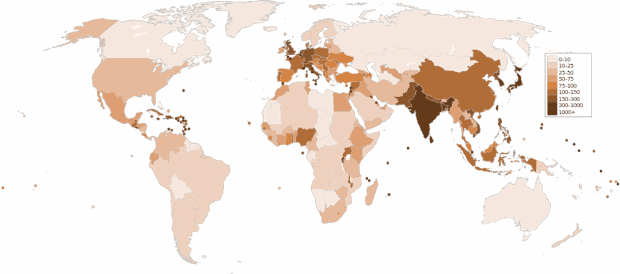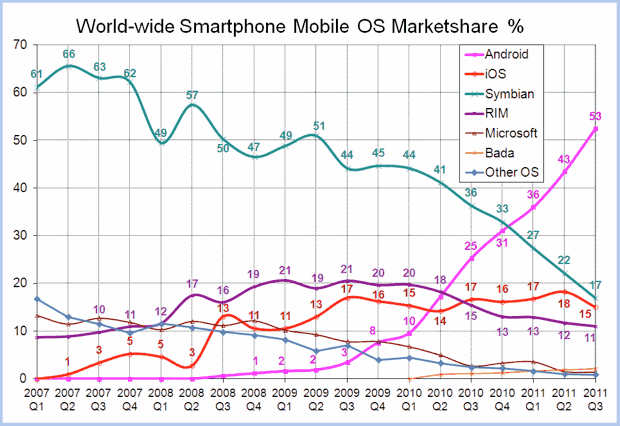Always bet on JavaScript, always bet on the web. This is really the reason Boot to Gecko is so interesting. Microsoft is now learning this the hard way. If Apple isn’t careful they too will learn this the hard way.
There’s been a lot of talk today about Telefónica’s involvement, but it’s worth noting the Mozilla blog announcement also mentions Deutsche Telekom Innovation Labs will join the Boot to Gecko project with dedicated development resources. That’s a pretty big deal.
The ability to run on lower end hardware which is cheaper to produce in quantity will make a huge difference. Tech in general tends to focus on North America, Europe, Japan, Korea, Brazil, Australia in terms of target market. They do this because they are wealthy countries reasonably free markets, similar taste, and trade agreements make it favorable.
This however has a huge downside. Overall this is excluding a huge chunk of the world. China alone is about 1.3 billion people (CIA estimate 2012) with a GNI of $7,570 (compared to $47,120 for the US). As large as Brazil is (~192.3 million), it’s only half of the 385.7 million in South America.
Take a look at the map in terms of GNI:

Now compare that to population density. Pay close attention to Asia, South Asia and Western Africa:

Who’s dominated this market to date? For most of the time it’s been Symbian since phones that run that slim OS have been rather cost effective. More recently it’s becoming Android now that older hardware exists that can be produced cheaply. Notice in the graph below where Android’s growth is coming from. Many would like you to think it’s only Apple and Android out there. That’s hardly where Android is growing users from. It’s market-share from Symbian.

That Apple iOS dip is likely the drop-off prior to the iPhone 4S shipping rather than Android. It was only released in October after iPhone 4 sales stalled in anticipation. You see a similar dip in 2008. 2009 is likely offset by the iPad’s success.
Of course an OS that runs fast on slower ARM hardware will run blazing fast on more expensive state of the art hardware. So everyone really benefits from being lean and fast.
This is about bringing the mobile internet to billions of people. It’s a big deal.
Hat Tip to Wikipedia for the maps and graph





